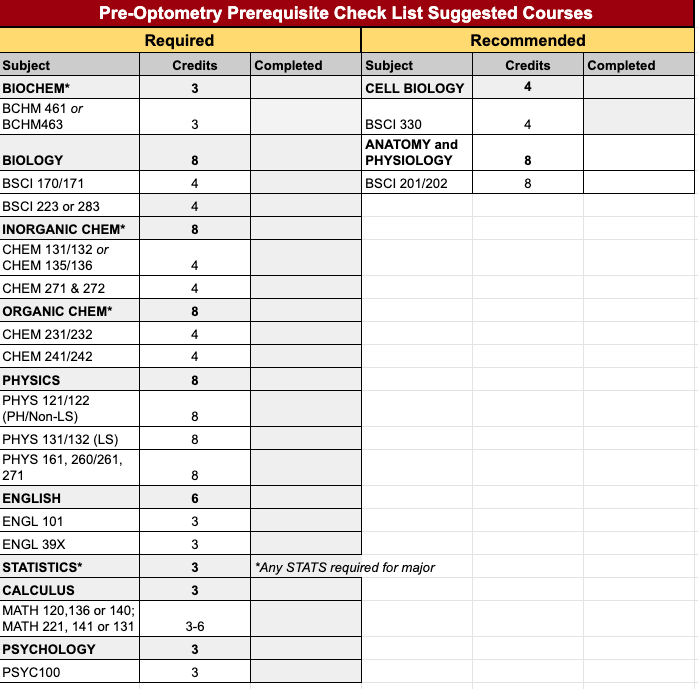Doctors of optometry are primary care doctors of the eye. Doctors of optometry are educated in general health issues as well as the specialization of the eye.
Schools and colleges of Optometry award the O.D. degree after four years of study. The first two years typically consists of foundational science courses and their application to the study of medicine. The final two years are more patient-focused and the student is exposed to a variety of specialities within the medical field.
Following graduation, some students undergo more advanced, specialized training in a field of their choice, such as pediatric or geriatric optometry, low vision rehabilitation, family practice, hospital or primary care optometry. All students must successfully complete the training in the school or college of optometry and pass a State Board Examination. Optometrists typically work in an office setting, usually in a private practice. Some optometrists work in group practices but most function independently. As with other health care professionals, they may be employed by a health service organization, work in hospitals or other institutions, such as schools or government agencies. They are trained to examine the eye for any abnormalities and test for proper eye function. When problems are detected, treatment can include corrective glasses or contact lenses, eye therapy or prescription drugs (some states only). For more advanced diseases, optometrists refer patients to another medical practitioner, often an opthamologist who is a D.O. or M.D. specializing in care of the eye.

Chart of Pre-requisites for Various Optometry Programs
In addition, there are many Minors that cover topics critical to expanding understanding of the various determinants of health. Coursework related to Diversity, Equity, and Inclusion can be helpful in developing cultural awareness, cultural humility, and an understanding of systemic discrimination in the health care system. Even if your academic plan does not permit adding a minor, it is worth reviewing the curated course lists for courses that will stretch you, increase your language for difference and disparity, show your intellectual curiosity, and improve your critical reasoning skills.
Requirements:
- At least 1 year clinical experience(s)
- At least 1 year long-term community service work
American Optometric Association
Association of Schools and Colleges of Optometry (ASCO)
Optometry School Admission Profiles
Professional School Application Services
Required Letters of Recommendation by School
Prepare for the OAT (for your further research; not endorsed by HPAO)
Alumni Blog: Optometry
There are currently no alumni blog posts tagged with optometry.


